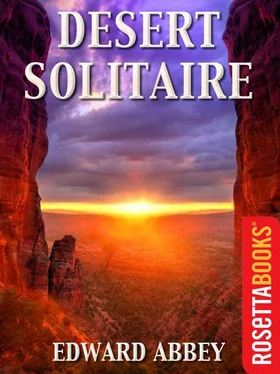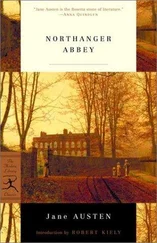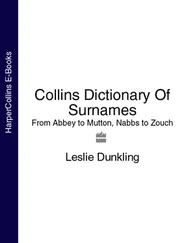Abbey, Edward - Desert Solitaire (Edward Abbey Series )
Здесь есть возможность читать онлайн «Abbey, Edward - Desert Solitaire (Edward Abbey Series )» — ознакомительный отрывок электронной книги совершенно бесплатно, а после прочтения отрывка купить полную версию. В некоторых случаях можно слушать аудио, скачать через торрент в формате fb2 и присутствует краткое содержание. Год выпуска: 2011, Издательство: RosettaBooks, Жанр: Старинная литература, на английском языке. Описание произведения, (предисловие) а так же отзывы посетителей доступны на портале библиотеки ЛибКат.
- Название:Desert Solitaire (Edward Abbey Series )
- Автор:
- Издательство:RosettaBooks
- Жанр:
- Год:2011
- ISBN:нет данных
- Рейтинг книги:4 / 5. Голосов: 1
-
Избранное:Добавить в избранное
- Отзывы:
-
Ваша оценка:
- 80
- 1
- 2
- 3
- 4
- 5
Desert Solitaire (Edward Abbey Series ): краткое содержание, описание и аннотация
Предлагаем к чтению аннотацию, описание, краткое содержание или предисловие (зависит от того, что написал сам автор книги «Desert Solitaire (Edward Abbey Series )»). Если вы не нашли необходимую информацию о книге — напишите в комментариях, мы постараемся отыскать её.
Desert Solitaire (Edward Abbey Series ) — читать онлайн ознакомительный отрывок
Ниже представлен текст книги, разбитый по страницам. Система сохранения места последней прочитанной страницы, позволяет с удобством читать онлайн бесплатно книгу «Desert Solitaire (Edward Abbey Series )», без необходимости каждый раз заново искать на чём Вы остановились. Поставьте закладку, и сможете в любой момент перейти на страницу, на которой закончили чтение.
Интервал:
Закладка:
Desert Solitaire
A Season in the Wilderness
Edward Abbey
Copyright
Desert Solitaire
Copyright © 1968 by Edward Abbey, renewed 1996 by Clarke Abbey
Cover art to the electronic edition copyright © 2011 by RosettaBooks, LLC
All rights reserved. No part of this book may be used or reproduced in any manner whatsoever without written permission except in the case of brief quotations embodied in critical articles and reviews.
Electronic edition published 2011 by RosettaBooks LLC, New York.
ISBN Mobipocket edition: 9780795317477
for Josh and Aaron
Contents
Author’s Introduction
The First Morning
Solitaire
The Serpents of Paradise
Cliffrose and Bayonets
Polemic: Industrial Tourism and the National Parks
Rocks
Cowboys and Indians
Cowboys and Indians Part II
Water
The Heat of Noon: Rock and Tree and Cloud
The Moon-Eyed Horse
Down the River
Havasu
The Dead Man at Grandview Point
Tukuhnikivats, the Island in the Desert
Episodes and Visions
Terra Incognita: Into the Maze
Bedrock and Paradox
AUTHOR’S INTRODUCTION
About ten years ago I took a job as a seasonal park ranger in a place called Arches National Monument near the little town of Moab in southeast Utah. Why I went there no longer matters; what I found there is the subject of this book.
My job began on the first of April and ended on the last day of September. I liked the work and the canyon country and returned the following year for a second season. I would have returned the third year too and each year thereafter but unfortunately for me the Arches, a primitive place when I first went there, was developed and improved so well that I had to leave. But after a number of years I returned anyway, traveling full circle, and stayed for a third season. In this way I was better able to appreciate the changes which had been made during my absence.
Those were all good times, especially the first two seasons when the tourist business was poor and the time passed extremely slowly, as time should pass, with the days lingering and long, spacious and free as the summers of childhood. There was time enough for once to do nothing, or next to nothing, and most of the substance of this book is drawn, sometimes direct and unchanged, from the pages of the journals I kept and filled through the undivided, seamless days of those marvelous summers. The remainder of the book consists of digressions and excursions into ideas and places that border in varied ways upon that central season in the canyonlands.
This is not primarily a book about the desert. In recording my impressions of the natural scene I have striven above all for accuracy, since I believe that there is a kind of poetry, even a kind of truth, in simple fact. But the desert is a vast world, an oceanic world, as deep in its way and complex and various as the sea. Language makes a mighty loose net with which to go fishing for simple facts, when facts are infinite. If a man knew enough he could write a whole book about the juniper tree. Not juniper trees in general but that one particular juniper tree which grows from a ledge of naked sandstone near the old entrance to Arches National Monument. What I have tried to do then is something a bit different. Since you cannot get the desert into a book any more than a fisherman can haul up the sea with his nets, I have tried to cecate a world of words in which the desert figures more as medium than as material. Not imitation but evocation has been the goal.
Aside from this modest pretension the book is fairly plain and straight. Certain faults will be obvious to the general reader, of course, and for these I wish to apologize. I quite agree that much of the book will seem coarse, rude, bad-tempered, violently prejudiced, unconstructive—even frankly antisocial in its point of view. Serious critics, serious librarians, serious associate professors of English will if they read this work dislike it intensely;. at least I hope so. To others I can only say that if the book has virtues they cannot be disentangled from the faults; that there is a way of being wrong which is also sometimes necessarily right.
It will be objected that the book deals too much with mere appearances, with the surface of things, and fails to engage and reveal the patterns of unifying relationships which form the true underlying reality of existence. Here I must confess that I know nothing whatever about true underlying reality, having never met any. There are many people who say they have, I know, but they’ve been luckier than I.
For my own part I am pleased enough with surfaces—in fact they alone seem to me to be of much importance. Such things for example as the grasp of a child’s hand in your own, the flavor of an apple, the embrace of friend or lover, the silk of a girl’s thigh, the sunlight on rock and leaves, the feel of music, the bark of a tree, the abrasion of granite and sand, the plunge of clear water into a pool, the face of the wind—what else is there? What else do we need?
Regrettably I have found it unavoidable to write some harsh words about my seasonal employer the National Park Service, Department of the Interior, United States Government. Even the Government itself has not entirely escaped censure. I wish to point out therefore that the Park Service has labored under severe pressure from powerful forces for many decades and that under the circumstances and so far it has done its work rather well. As governmental agencies go the Park Service is a good one, far superior to most. This I attribute not to the administrators of the Park Service—like administrators everywhere they are distinguished chiefly by their ineffable mediocrity—but to the actual working rangers and naturalists in the field, the majority of whom are capable, honest, dedicated men. Pre-eminent among those I have known personally is Mr. Bates Wilson of Moab, Utah, who might justly be considered the founder of Canyonlands National Park. He cannot be held responsible for any of the opinions expressed herein, but he is responsible for much of what understanding I have of a country we both love.
A note on names. All of the persons and places mentioned in this book are or were real. However for the sake of their privacy I have invented fictitious names for some of the people I once knew in the Moab area and in a couple of cases relocated them in space and time. Those who read this will, I hope, understand and forgive me; the others will not mind.
Finally a word of caution:
Do not jump into your automobile next June and rush out to the canyon country hoping to see some of that which I have attempted to evoke in these pages. In the first place you can’t see anything from a car; you’ve got to get out of the goddamned contraption and walk, better yet crawl, on hands and knees, over the sandstone and through the thornbush and cactus. When traces of blood begin to mark your trail you’ll see something, maybe. Probably not. In the second place most of what I write about in this book is already gone or going under fast. This is not a travel guide but an elegy. A memorial. You’re holding a tombstone in your hands. A bloody rock. Don’t drop it on your foot—throw it at something big and glassy. What do you have to lose?
E. A.
April 1967
Nelson’s Marine Bar
Hoboken
Give me silence, water, hope
Give me struggle, iron, volcanoes
—Neruda
THE FIRST MORNING
This is the most beautiful place on earth.
There are many such places. Every man, every woman, carries in heart and mind the image of the ideal place, the right place, the one true home, known or unknown, actual or visionary. A houseboat in Kashmir, a view down Atlantic Avenue in Brooklyn, a gray gothic farmhouse two stories high at the end of a red dog road in the Allegheny Mountains, a cabin on the shore of a blue lake in spruce and fir country, a greasy alley near the Hoboken waterfront, or even, possibly, for those of a less demanding sensibility, the world to be seen from a comfortable apartment high in the tender, velvety smog of Manhattan, Chicago, Paris, Tokyo, Rio or Rome—there’s no limit to the human capacity for the homing sentiment. Theologians, sky pilots, astronauts have even felt the appeal of home calling to them from up above, in the cold black outback of interstellar space.
Читать дальшеИнтервал:
Закладка:
Похожие книги на «Desert Solitaire (Edward Abbey Series )»
Представляем Вашему вниманию похожие книги на «Desert Solitaire (Edward Abbey Series )» списком для выбора. Мы отобрали схожую по названию и смыслу литературу в надежде предоставить читателям больше вариантов отыскать новые, интересные, ещё непрочитанные произведения.
Обсуждение, отзывы о книге «Desert Solitaire (Edward Abbey Series )» и просто собственные мнения читателей. Оставьте ваши комментарии, напишите, что Вы думаете о произведении, его смысле или главных героях. Укажите что конкретно понравилось, а что нет, и почему Вы так считаете.












